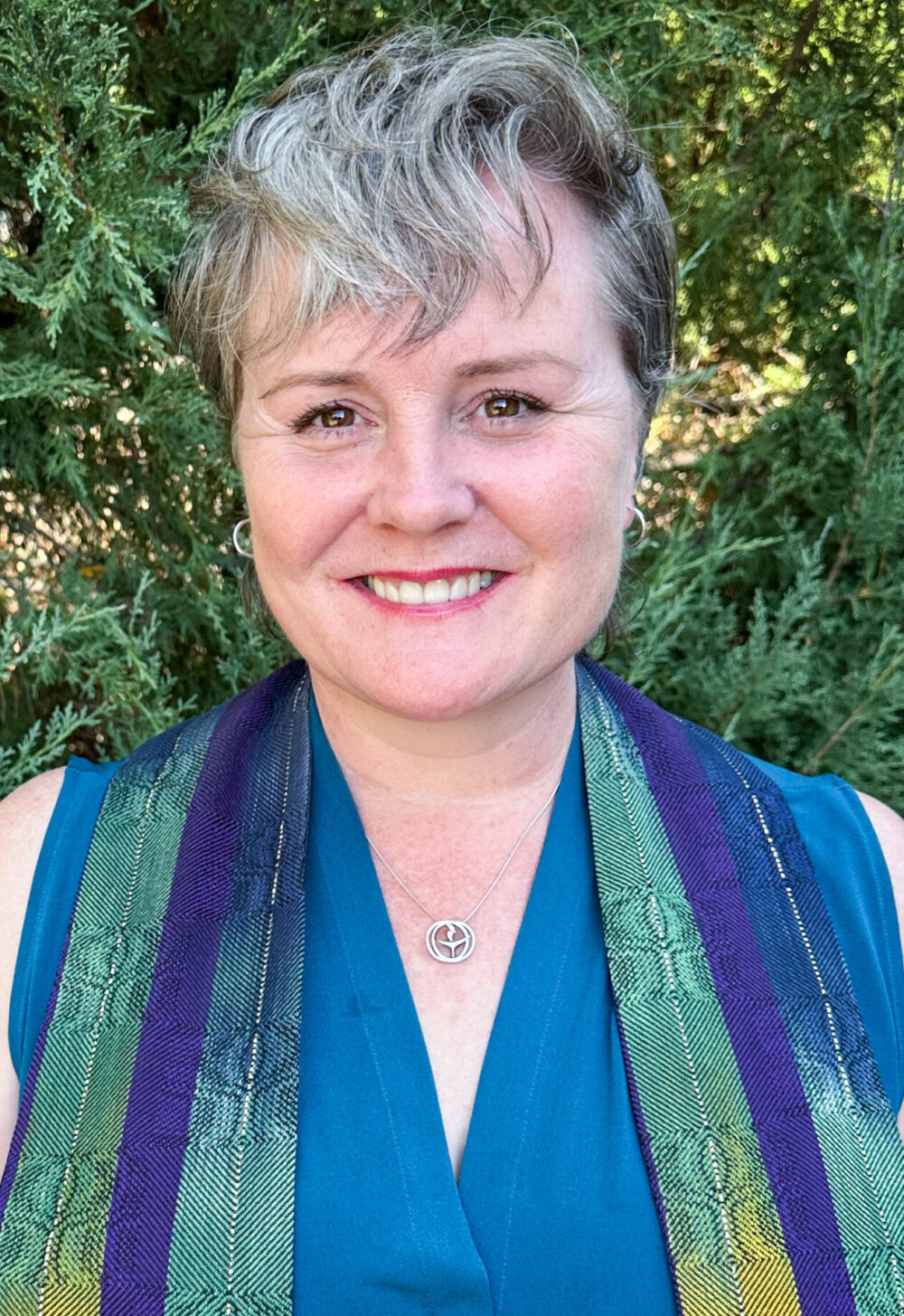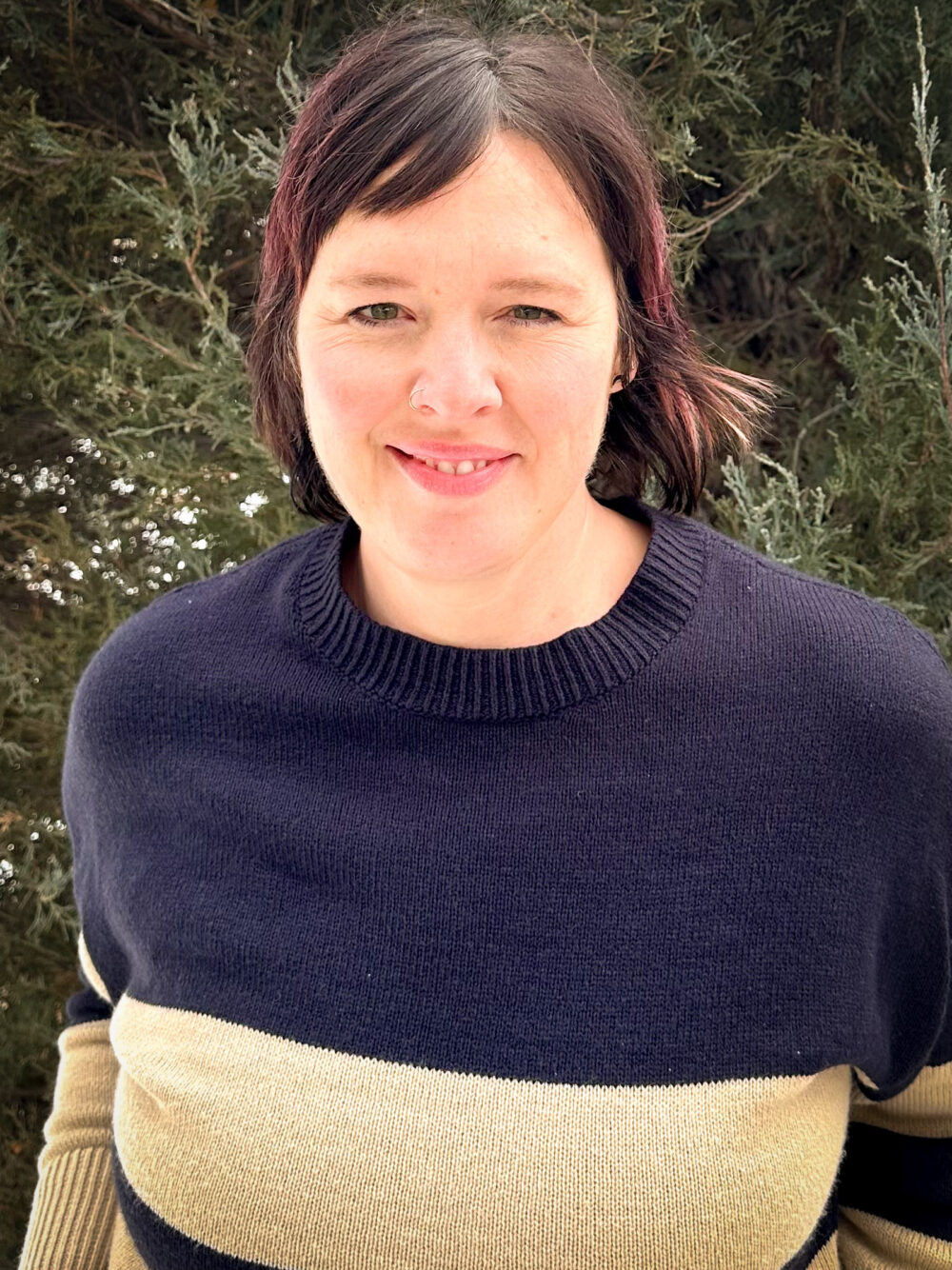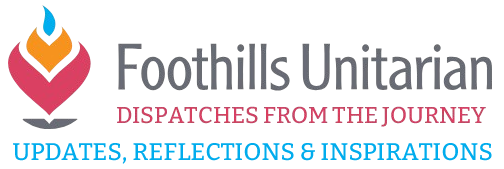 A year ago right now, we were preparing for election day. I woke up and put on a white shirt, and helped my daughter find a white shirt, we took a selfie together – we were planning for an historical outcome in the national election. It wasn’t that I thought it was a foregone conclusion – I knew the race was tight. But there was something in my white middle class progressive Unitarian DNA that refused to truly believe that the United States would follow up its election of the first African American president with the election of a president who bragged about sexual assault, or who portrayed Mexican immigrants as rapists, or who denied climate change, or…..
A year ago right now, we were preparing for election day. I woke up and put on a white shirt, and helped my daughter find a white shirt, we took a selfie together – we were planning for an historical outcome in the national election. It wasn’t that I thought it was a foregone conclusion – I knew the race was tight. But there was something in my white middle class progressive Unitarian DNA that refused to truly believe that the United States would follow up its election of the first African American president with the election of a president who bragged about sexual assault, or who portrayed Mexican immigrants as rapists, or who denied climate change, or…..
Many of us woke up on November 9th, 2016 stunned by a reality that probably shouldn’t have been such a surprise – but it was. It was painful, and even traumatic for many to have to face, and the fear of what it would mean hung over all of us with an aching dread.
A year later, I wish I could say that these fears were all unfounded, that the communal grief that sent nearly 430 of you into the Sunday service the Sunday after the election was overblown…..but it has been predictably, a really hard year. The fights for health care, and GLBT rights, and against the Refugee Ban, and the campaign-promise-fulfilling willingness to deport all those who are undocumented, regardless on the impact on families or on the individual worthiness as a contributing part of our community…the twitter fueds and the re-initiated global panic on the potential of nuclear war….these all take a toll, on all of us.
The ripple effects of anxiety and overwhelm, dread, and even despair have therapists working overtime, and still each Sunday, so many come for the first time, seeking some way to making meaning and to find hope in the midst of this difficult and upside down world.
A year later, however, I am not without good news. I’ve watched – in countless meetings and in small conversations – a new desire to engage, to make a difference, to orient our lives towards meaningful contributions, and to learn the skills needed to listen more deeply, connect more authentically, and to be a part of much needed healing and restoration for our world.
I’ve seen a deeper commitment to spiritual growth, to attending worship, to giving of yourself in time and with money – this great generosity of spirit in service of a larger vision. And I’ve seen bright faces of joy, and hope, each Sunday – a huge desire to learn, and grow, and be a part of the change we wish to see.
I’ve also seen new grassroots organizations formed, and new partnerships started – some of these have been especially important for our congregation and our learning in addressing homelessness, economic justice, and interfaith relationships. And, a new boldness and courage has taken shape in all sorts of ways, not the least of which in our community has been visible in our sanctuary vote and efforts.
In the past ten months, I’ve taken so many people to their first protest march, it’s incredible. And, I’ve seen a willingness to take risks on behalf of deeper values in ways that I truly don’t think would’ve happened even a couple years ago.
What’s especially meaningful to me through all of this, however, is that I know that not everyone agrees about all the things, or in all the same way – and yet we have found a way to remain in conversation and dialogue. We have been working hard at learning how to have meaningful conversations about real things – and yet to be able to disagree, even while staying connected. It’s a practice that’ll likely take us our whole lives, and so we will continuously rely on grace, and spiritual practices of renewal, and a respect of a regular Sabbath, however that looks like to each of us.
As we cross this year mark, I am especially aware of the potential for burnout – in all of us. That we will simply be too overwhelmed or too tired to keep engaging, that church and community and participating could feel like just one more item on an already too-full to-do list. That the initial burst of resistance will transform into old complacency or cynicism.
This is all on my mind and heart as I look ahead to our plans for the next few months and beyond – at church, and in my own life. We have many days ahead, and there’s no guarantee things are going to get easier. We must be vigilant in all the things that allow us to keep going, to remain at the table so that we can do the hard work, to keep tending to that bright thread of hope. And we must keep leaning in to care for each other, sing for and with each other, make meals for and with one another, keep taking time for gratitude, and joy; silence and story; community and care – committing ourselves once again to the power and potential of real, authentic community of trust and accountability, calling us to show up each day, and offer ourselves to that greater vision.

Rev. Gretchen Haley has an audacious ambition for the liberal church, believing in its capacity to transform lives and our world by way of hyper-local relationships and partnerships that inspire the unleashing of courageous love. She oversees worship, community resourcing and outreach, and the intersectional work of our justice teams. She also serves as chief of staff, and ministry lead to the Board. In all of these, she is inspired by the commitment of the countless people who show up to do the sometimes-messy work of the church, and who are leading us to live into our mission for Northern Colorado as it is growing and changing. Her ministry is infused with her relentless curiosity about most things, especially the big stuff of theology, the beauty of creation, the magic of collaboration, and the joy of pop culture. She’s all in on adrienne maree brown’s emergent strategy, and finds solace in the trails in and around Fort Collins. She moved to Colorado from Washington state over 20 years ago for grad school in theatre, and knew immediately that she would never leave. She and her amazing partner, Carri, have 2 teenagers, Gracie and Josef, who both relish and resent being PKs, and who keep her grounded, frustrated, inspired, and humbled, everyday. She is basically obsessed with her two dogs, both large mutts, Charlie and Archer.
Responsible for: Worship, Community Resourcing and Outreach, Justice Ministries, and Congregational Leadership


 A year ago right now, we were preparing for election day. I woke up and put on a white shirt, and helped my daughter find a white shirt, we took a selfie together – we were planning for an historical outcome in the national election. It wasn’t that I thought it was a foregone conclusion – I knew the race was tight. But there was something in my white middle class progressive Unitarian DNA that refused to truly believe that the United States would follow up its election of the first African American president with the election of a president who bragged about sexual assault, or who portrayed Mexican immigrants as rapists, or who denied climate change, or…..
A year ago right now, we were preparing for election day. I woke up and put on a white shirt, and helped my daughter find a white shirt, we took a selfie together – we were planning for an historical outcome in the national election. It wasn’t that I thought it was a foregone conclusion – I knew the race was tight. But there was something in my white middle class progressive Unitarian DNA that refused to truly believe that the United States would follow up its election of the first African American president with the election of a president who bragged about sexual assault, or who portrayed Mexican immigrants as rapists, or who denied climate change, or…..